Satellite Images Show Tankers Seized By Iran
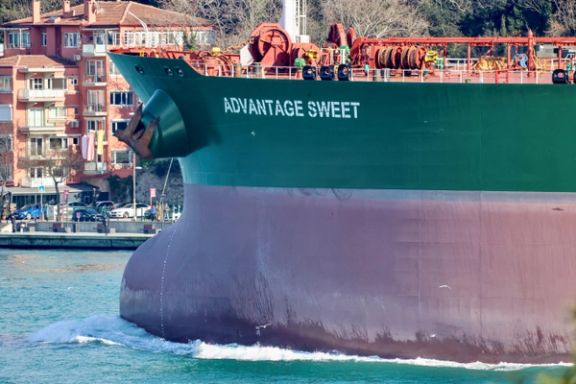
Satellite images analyzed on Sunday by The Associated Press show two oil tankers recently seized by Iran off the coast of one of its key port cities on the strategic Strait of Hormuz.

Satellite images analyzed on Sunday by The Associated Press show two oil tankers recently seized by Iran off the coast of one of its key port cities on the strategic Strait of Hormuz.
The photos from Planet Labs PBC showed the Advantage Sweet and the Niovi anchored just south of Bandar Abbas near a naval base in the port city in Iran's Hormozgan province on Saturday.
Their capture represents just the latest ship seizure conducted by Iran amid tensions with the West over its rapidly advancing nuclear programme, though it appears the two ships may have been taken for different reasons.
Iran seized the Marshall Islands-flagged Advantage Sweet, staffed by 23 Indians and one Russian, on April 27 as it travelled in the Gulf of Oman.
Tehran claimed the vessel had struck another ship, though tracking data for the Advantage Sweet showed no erratic behaviour on its trip.
Iran has made claims in the past over ship seizures to cover for the vessels being taken to use as pawns in negotiations with the West.
The Advantage Sweet carried Kuwaiti crude oil for American energy firm Chevron Corp. of San Ramon, California, at the time of its capture.
The Niovi, a Panama-flagged tanker, was seized by Iran's paramilitary Revolutionary Guard on Wednesday as it left a dry dock in Dubai, United Arab Emirates, bound for Fujairah on the UAE's eastern coast.
Iran has said it seized the Niovi over an unspecified court order in Tehran.
The managers of the Niovi did not respond to repeated telephone calls for comment.
The Greek Coast Guard have said the Niovi was staffed by Greek, Filipino and Sri Lanka sailors.
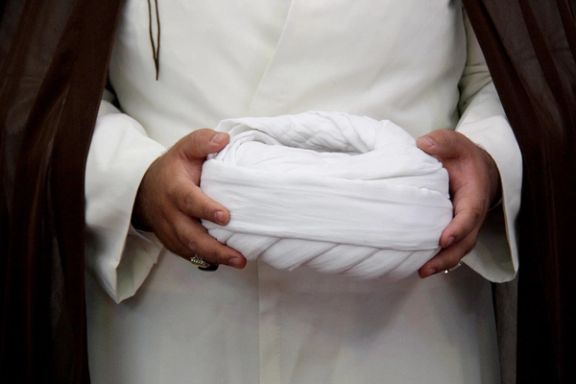
A cleric was stabbed on Saturday night in central Markazi province in the latest of a series of attacks on the clergy in Iran.
The cleric in the village of Ahmadabad was taken to hospital after being wounded by his assailant, a young man in his twenties, according to police.
The IRGC-affiliated Fars News Agency quoted police officials as claiming that the attacker was a “mentally ill person”.
Attacks on clerics have risen in Iran in recent weeks.
In late April, a former Khamenei aide associated with the mass executions of the 1980s was assassinated in a bank in the northern city of Babolsar.
He was the most senior clergyman killed in months of unrest that has rocked the country since the death in custody last September of Mahsa Amini, a 22-year-old woman who had been arrested for not wearing hijab.
After the senior cleric’s death, some reports said he was in the bank to withdraw 42 billion rials (nearly 90,000 USD) in cash, but the branch manager of Mazandaran National Bank said he wanted to transfer 42 million rials (almost 90 USD).
Tehran police announced on April 27 that a manhunt was underway to find a driver involved in the attempted murder of a cleric in the capital.
Three day later, media close to the Revolutionary Guard said two more clerics were targeted by a driver in the Iranian religious city of Qom.
A vehicle ran over the two clerics injuring them while the driver came out of his vehicle and stabbed one of them.
Since the 1979 revolution, the clergy have gained increasing power, but discontent has risen in recent years, particularly amid waves of protests over economic, political, and civil rights issues.
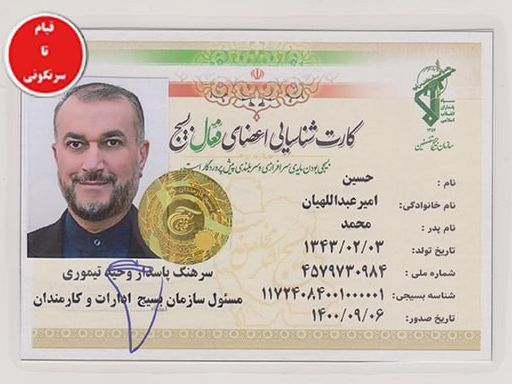
An Iranian group has hacked into the Islamic Republic’s foreign ministry servers, disabling 210 sites and online services and leaking a large batch of documents.
The hacktivist group ‘Uprising till Overthrow', affiliated with the Albania-based opposition Mujahideen-e Khalq (MEK) group, released hundreds of identification documents, minutes of meetings, the ministry’s correspondence, phone numbers of ministry officials, and the names of 11,000 employees of the foreign ministry, among others.
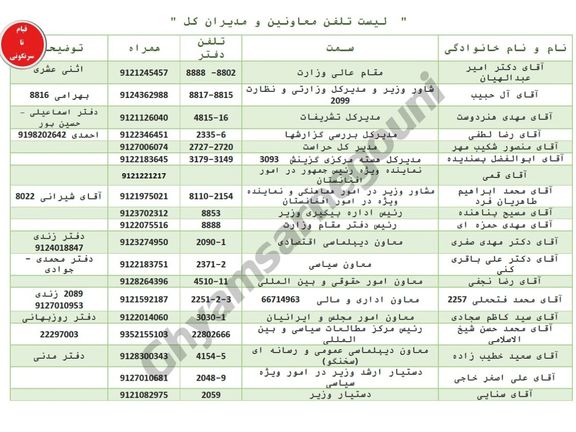
According to the telegram channel of the hackers, all the sites related to the ministry such as the Islamic Republic’s embassies, and affiliated organizations were targeted, showing a landing page with photos of the leaders of MEK as well as photos of Iran’s Supreme Leader Ali Khamenei and President Raisi with red crosses over them.
Also on the page, there were slogans of “Death to Khamenei” and “Hail to Rajavi”, the current leader of the opposition group. “There is a great revolution underway in Iran. The uprising will continue until the palace of oppression is demolished. Iran’s democratic revolution will be victorious,” read the message on the pages. Most of the pages were down midday on Sunday.
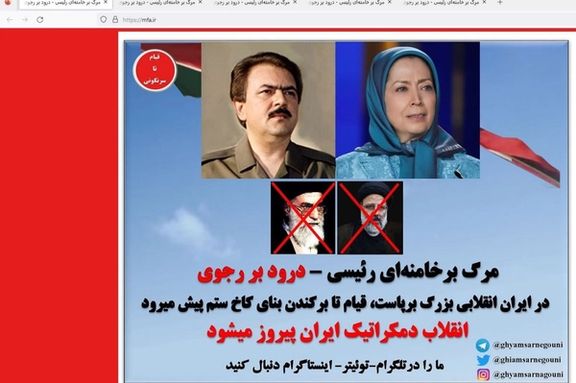
The ‘Uprising till Overthrow' had already hacked and deactivated several regime’s websites and services. In June 2022, it hacked over 5,000 security cameras of state bodies and 150 websites belonging to Tehran Municipality, displaying similar slogans on the websites and releasing internal data.
The hack comes after another cyberassault in March on the portal of the Ministry of Culture and Islamic Guidance (Ershad) and its affiliated websites showing the photos of the Rajavis and calling for the death of the country’s supreme leader.
Since the beginning of the current wave of protests in mid-September, several hacking groups have targeted state websites and online services. They have released numerous documents and have disrupted hundreds of surveillance cameras.
The documents leaked on Sunday also revealed the Islamic Republic’s continuous efforts and correspondence with European officials to finalize a prisoner swap deal with Belgium, which would see jailed Iranian diplomat Asadollah Assadi released in exchange for the detained Belgian aid worker Olivier Vandecasteele.
The Belgian Constitutional Court upheld a prisoner exchange treaty with Iran in March that could result in Assadi being swapped for Vandecasteele. The MEK mounted a fierce campaign against the deal, challenging the extradition.
Former Iranian embassy attaché, Asadollah Asadi, 51, is currently serving a 20-year sentence in Belgium for alleged attempted murder and involvement in terrorism for his role in plotting a bomb attack during an MEK event near Paris in 2018. Asadi, the only Iranian diplomat ever brought to trial in Europe for direct involvement in terrorism was arrested in Germany, where he did not enjoy diplomatic immunity while he was on holiday. German authorities later extradited Assadi to Belgium. He was a diplomat in Iran’s embassy in Austria.
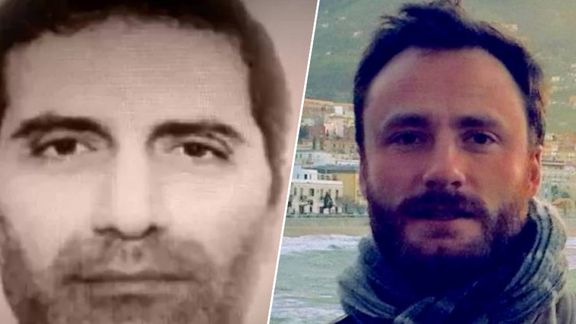
Security forces in Iran arrested aid worker Olivier Vandecasteele, 41, who has worked in a variety of humanitarian agencies since at least 2006. In January, the Islamic Republic’s judiciary sentenced Vandecasteele, who was detained in 2022, to 40 years in prison and 74 lashes for alleged “spying and cooperation with the United States, money laundering and smuggling $500,000 out of Iran.”
Iran has been accused of wrongfully detaining at least a dozen foreign and dual nationals on trumped up charges, effectively as hostages to extract concessions from Western governments. Most of them are held on spurious spying charges.
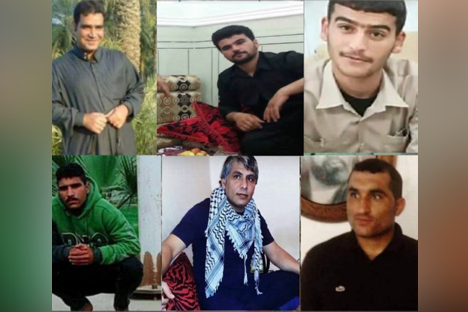
Three Iranian Arab prisoners who were sentenced to death have been moved to an unknown location, prompting fears that their execution is imminent.
Ali Majdam, Mohammad-Reza Moqaddam and Moin Khanfari have been transferred from Shiban prison in the southern city of Ahvaz to an unknown place, according to one prisoner’s family.
Concern that they are soon to be executed without their families having been informed is now growing following the reports of their relocation.
There are also fears about the fate of Habib Darees, Adnan Ghobeishavi and Salem Mousavi, three other Arab prisoners who have been sentenced to death.
In February, the Ahvaz Revolutionary Court sentenced the six prisoners to death on charges of "transferring currency and remittances through a foreign bank, armed attacks, and being associated with a political movement."
A Twitter campaign in support of the Arab political prisoners will be launched on Sunday promoting the hashtag "no to death".
This comes as the execution of Iranian-Swedish political activist Habib Asyud on Saturday has drawn widespread international condemnation.
Asyud, former leader of the Arab Struggle Movement for the Liberation of Ahwaz (ASMLA), had been convicted of leading an Arab separatist group accused of attacks including one on a military parade in 2018 that killed 25 people.
He was sentenced to death for being "corrupt on earth", a capital offence under Iran's strict Islamic laws.
Asyud, 49, was put on trial by a revolutionary court in Tehran in December. He was not allowed to choose his own defense attorney and was represented in his trial by a court-appointed lawyer. He was also forced under duress to make self-incriminating confessions.
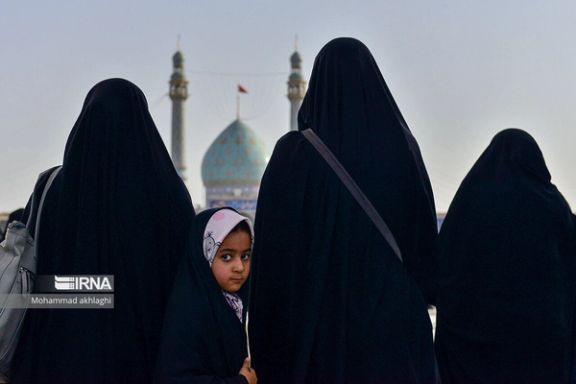
Conservative commentator Mohammad Mohajeri says supporters of the "Islamic Government" theory in Iran want to minimize elections and boost religious rule.
While the Islamic Republic is theoretically based on some democratic processes such as holding elections and giving the nation a voice in the parliament, the supporters of true ‘Islamic Government,’ a more radical theory, do not recognize the role of the parliament and do not believe in people's vote.
Mohajeri told the Iranian Labor News Agency (ILNA): "Those who believe in an Islamic Government do not clearly say that they do not value the people's vote because they know if the say so, the people will tear them apart."
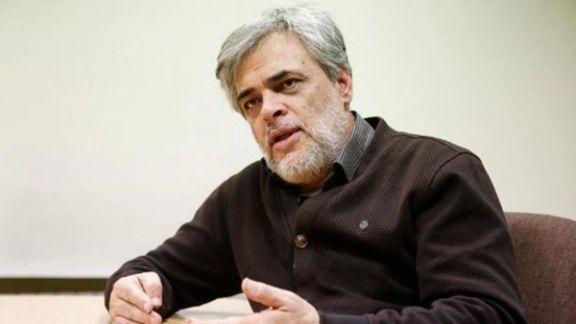
Despite Mohajeri's statement, the main advocate of the Islamic Government theory, Ayatollah Mohammad Taqi Mesbah Yazdi has said many times that the people's vote is useless as the Supreme Leader is appointed by God Almighty and even his aides are appointed by God rather than being elected by the people.
According to Mohajeri, some allege that the founder of the Islamic Republic, Ayatollah Ruhollah Khomeini, also believed in full Islamic Government and the reason why he supported the idea of establishing an Islamic Republic was to prevent criticism from the international community.
Mohajeri added: "Although the advocates of Islamic Government refrain from openly expressing their opposition to elections, they take measures that undermine the people's vote." He explained: "They do this by changing the political situation in a way to ensure minimal turnouts in elections, so that they can further their own ideas."
Mohajeri's statement alludes to what happened in the latest parliamentary election in 2020 and the presidential election of 2021, when mostly hardliners were allowed to run. This brought an inefficient parliament and president to power, so that Supreme Leader Ali Khamenei can now dictate whatever he wants to them.
On the other hand, many key decisions about the affairs of the state are handed over to the heads of the three powers of the government, such as the decision to dramatically increase the price of fuel in 2019, and the decision about accepting the terms of the international financial watchdog, the FATF, that was handed over to the Expediency Council. The former case led to one of the biggest and bloodiest protests in Iran and the latter has left Iran's foreign trade in a state of limbo for several years now.
Even some of the decisions that are apparently made by the parliament, like the decision on the budget bill for 1400 (two years ago) were finalized according to Khamenei’s taste, by the president, speaker of parliament and the head of the judiciary.
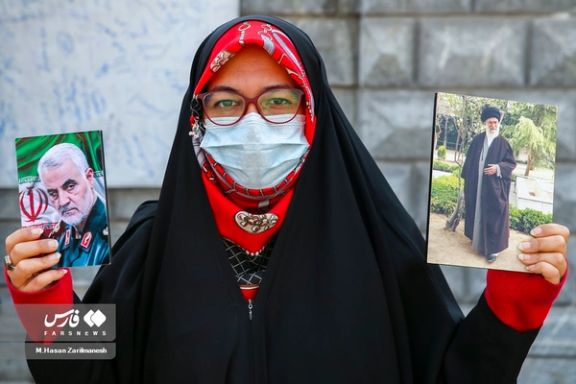
Mohajeri's comments followed a statement by former President Mohammad Khatami who said recently that some Iranian politicians have turned to the idea of an Islamic Government rather than the Islamic Republic. Khatami however argued that what Khomeini had in mind was not the rule of clerics.
Asked to clearly name the advocates of the totalitarian Islamic Government, Mohajeri said: "A small part of radical conservatives believe in this idea," but refrained from naming any individual or group. Referring once again to the results of the latest elections in Iran, he said: "Naturally, when a majority of the people do not take part in the election, the political atmosphere will be controlled by the radicals."
With these explanations, the statement by reformist figure Mohsen Mirdamadi makes better sense. According to Rouydad24, Mirdamadi said: "Boycotting the election is not the favorite choice of political parties. But sometimes it is the only option on the table." He added: "When the reformists see that they cannot further any one of their plans by taking part in elections, they find out that their presence in the election can only lead to a decline in their social capital."
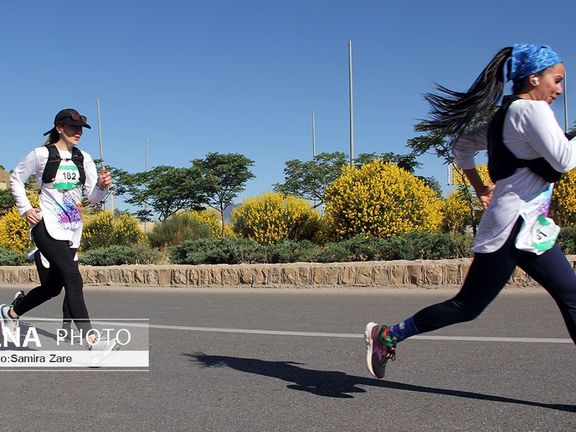
Iranian authorities have summoned the organisers of a marathon race in Shiraz after a number of women ran without hijab.
The Judiciary of Iran’s Fars Province has filed a case after the marathon race was held on Friday in the central streets of the city of Shiraz.
Mustafa Bahraini, Prosecutor General of the southern province said on Saturday that after this "deconstructive" action, the director and organizers have been summoned to provide an explanation.
Some women spectators in the street also defied the edit to wear hijab.
Since the death last September of 22-year-old Mahsa Amini in the custody of morality police and the protests that engulfed the country for months, many women have discarded their headscarves altogether and vowed never to wear it again.
The Islamic Republic is now facing the phenomenon of "hijablessness" as a form of civil disobedience.
Only five months after the Islamic Revolution of 1979, then leader of Iran Ayatollah Ruhollah Khomeini banned women from appearing without a veil in government offices. The ban gradually spread to the entire society within the next two years.
Iran's women eventually gave into covering their hair, even if partially, with headscarves and shawls and wearing tunics and trousers that could be tight-fitting and/or colorful. The hardline religious and political establishment considered this level of compliance faulty and called these women "bad-hijab".